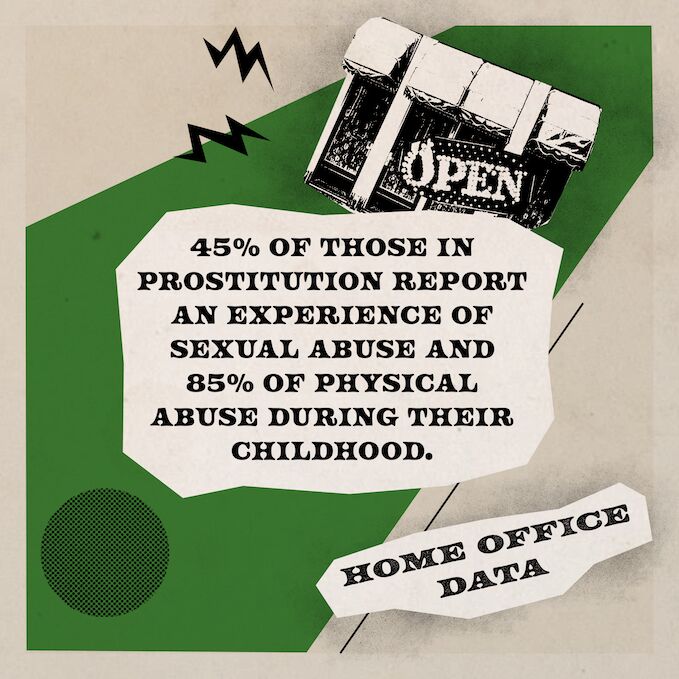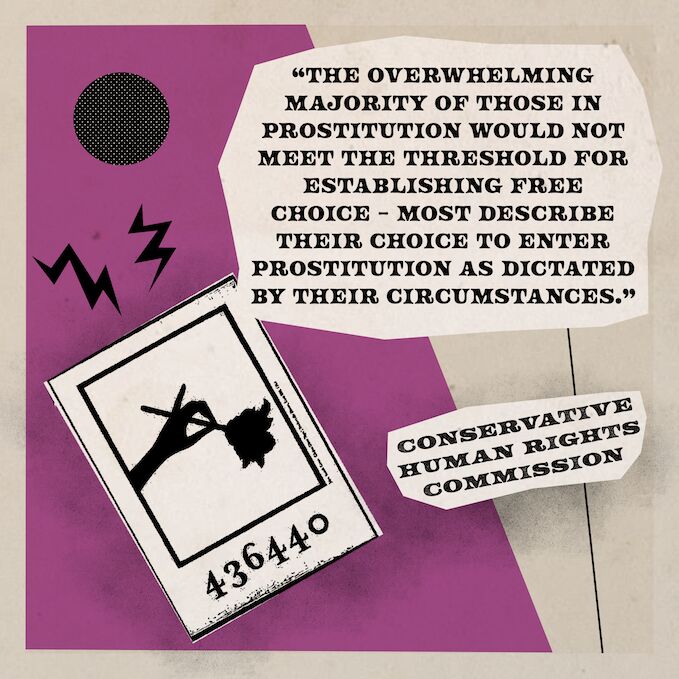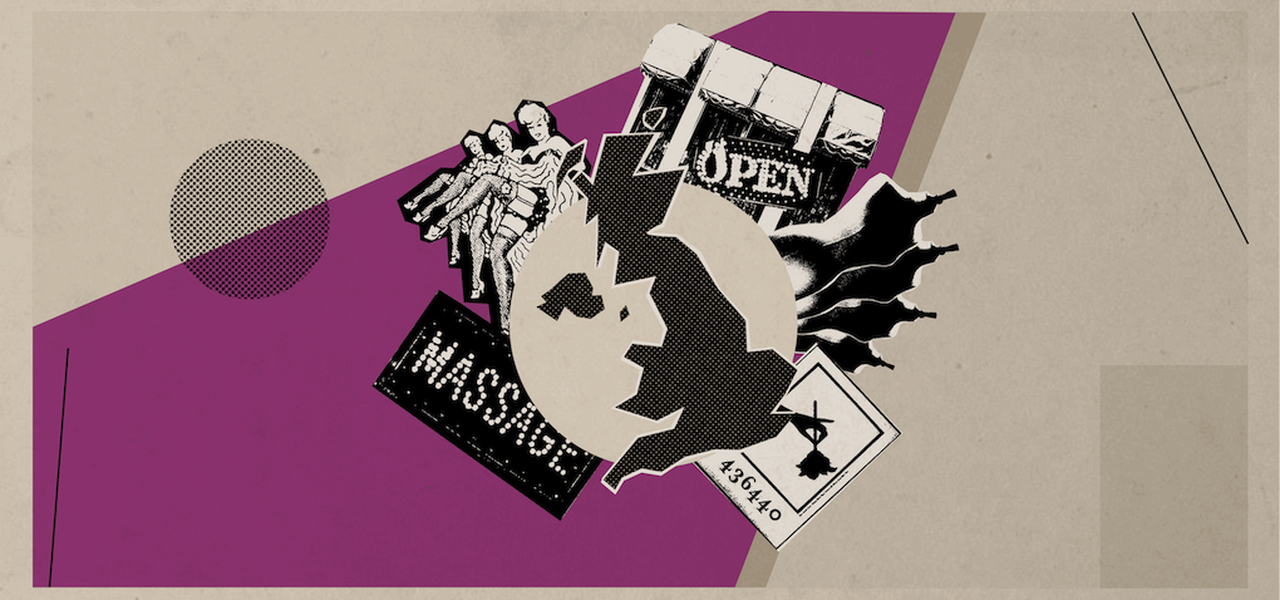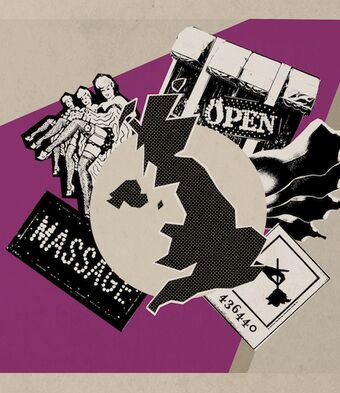There are many ideological debates that rage in our culture today. One which might seem more obscure, but actually touches on vital issues to do with human dignity, is the issue of prostitution.
The fact that prostitution is so divisive might be news to some. It is an activity that, in Britain at least, largely goes on behind closed doors, and when we do hear about it in the news, it’s usually a voyeuristic window into a celebrity scandal.
The most intense debate on the issue occurs in a more niche cross-section of society, usually between differing feminist groups. Yet it's an issue that's becoming increasingly popular with a younger generation, and arguments on both sides proliferate social media. It isn’t unusual these days to see the refrain ‘sex work is work’ awash over Instagram accounts, yet the same mantra produces a plethora of angry Twitter threads, denouncing its message as violence against women.
So why should we care about it? Predominantly, we should take an interest in this issue because it affects extremely vulnerable people. It’s not enough that we rest on our laurels and expect the police to clean up the mess. There are very different approaches to tackling the issue of prostitution and it is important, therefore, that we understand the arguments and make up our own minds about the best one to adopt.
What is agreed on all sides is that the present system is failing individuals and it's time Britain reformed its prostitution laws. In this two-part series, we examine why the law needs changing, what the differing approaches are, and why, at CARE, we think the Government should make it illegal to pay for sex.
What is the current law in the UK?
Despite the fact we don’t often see or hear about it, prostitution remains rife throughout the UK. There are an estimated 72,800 people in prostitution, and 32,000 of these are London-based. It is also, undeniably, a highly gendered issue that disproportionately affects women. In 2014, the Office of National Statistics estimated there were around 58,000 women in prostitution, with an average of 25 clients a week.
Currently, paying for sex and providing sexual services for payment are legal in England, Scotland and Wales. Prostitution in its fundamental form is therefore permissible. It is possible for a person to sell access to their body for the purposes of sex, and it is possible for someone to pay for that access.
There are, however, a range of activities connected to prostitution that are illegal. This includes soliciting in public places to provide or buy sexual services (commonly known as kerb crawling), and offences to do with keeping brothels and controlling others in prostitution. It is also an offence to purchase sexual services from a person who has been coerced or exploited into prostitution.
Prostitution is a devolved matter, so the law differs in the various regions of the UK. The law in Scotland is currently the same as England and Wales. However, in Northern Ireland, the approach is considerably different from the rest of the UK. The law on prostitution was changed in 2015 when the Northern Ireland Assembly passed the UK's first comprehensive human trafficking legislation, a process that CARE was privileged to be involved in. This Act made it illegal to pay for sexual services, thereby criminalising demand for the purchase of sex. This is commonly dubbed the ‘Nordic model’, due to the fact that it was first adopted in Sweden. There is also provision in the Northern Ireland legislation for better services to help individuals exit prostitution.
It is currently hotly debated whether the rest of the UK should follow this approach.

Two entrenched views
This dispute is between two entrenched perspectives about which policy works best to address prostitution. One side believes prostitution should be decriminalised completely. The other side believes it should remain under the criminal law, but only the person paying for sex should be criminalised. Both views stem from an ideological perspective about the nature of selling sex, as well as more practical considerations about which law would best tackle the vulnerability of a life in prostitution.
Legalisation or Decriminalisation
Those who support this standpoint do so because they fundamentally view prostitution as a form of work that anyone should be able to take up if they choose, or if that is the only way they can survive. Prostitution is either something that is taken up freely by those exercising their bodily autonomy, or it is a job that individuals need to be able to carry out with full employment rights, in order to best protect them from harm.
For those who argue that prostitution is legitimate work, there are two potential approaches:
Some argue it should be completely decriminalised, for both the buyer and the seller. The only offences that then remain in place are those that target individuals who traffic or exploit people into prostitution. This is broadly the system adopted in New Zealand, where there is full decriminalisation of all prostitution-related activities including brothel keeping and pimping.
Another option is to legalise prostitution. This is where prostitution is regulated by law, and where brothels are legal but must be licensed. Generally, this system requires those providing sexual services to register as ‘sex workers’ and to pay tax. This is roughly the model adopted by Germany and the Netherlands.
Criminalise demand
On the other hand, there are those who view prostitution as a form of fundamental violence against women. Given that the overwhelming majority of individuals in prostitution are women, and it is predominantly men who pay for sex, it is seen as part of a patriarchal system and exploitative experience that allows men to use women’s bodies – to buy access to them as property.
For those who view prostitution this way, they argue that Britain should adopt the Nordic model, putting the focus of the criminal law on the buyer and making it a criminal offence to purchase sexual acts and exploit others in prostitution. Under this model, there is no criminal offence for providing sexual services for payment, so an individual in prostitution is not criminalised.
Legislation in this area seeks to tackle the demand for paid sex, in order to significantly reduce sexual exploitation and levels of prostitution generally. It has thus far been adopted by Sweden, Iceland, France, Canada, the Republic of Ireland, Israel and Northern Ireland. It is also supported by Resolutions of the European Parliament and the Council of Europe Parliamentary Assembly.
Criminalising the buyer of sexual services often goes hand in hand with policies helping individuals exit prostitution. By not targeting those selling sexual services, the model recognises that the majority of people who enter prostitution do not do so out of a free ‘choice’, but are often deeply vulnerable individuals who have experienced any or all of child sexual abuse, substance addiction, and homelessness, and may not be able to find work because of language barriers or lack of education. The model therefore seeks to give those individuals help to establish their lives outside of prostitution.
The current law isn’t working
What is in agreement on both sides of the debate is that the current law on prostitution in England and Wales does not work. Since the last review of the law in 2009, the Government have focused more on practical approaches to tackle the issue, but a change to legislation has not been reconsidered since 2015. What is becoming increasingly clear is that practical approaches are not proving to address the harms associated with prostitution. For example, policing of prostitution is inconsistent due to a lack of clear, coherent strategy across Britain and sufficient policing resources.
The deficiencies in the current law were summarised by the All-Party Parliamentary Group on Prostitution in their 2014 inquiry:
“The legal settlement around prostitution sends no clear signals to women who sell sex, men who purchase it, courts and the criminal justice system, the police or local authorities. In practice, those who sell sexual services carry the burden of criminality despite being those who are most vulnerable to coercion and violence. This serves to normalise the purchase and stigmatise the sale of sexual services - and undermines efforts to minimise entry into and promote exit from prostitution.”
The law is particularly ineffective at present in its efforts to protect victims of sexual exploitation, especially children. For example, the APPG on Prostitution found that the current law for protecting victims of sexual exploitation (Section 14 of the Policing and Crime Act 2009) is insufficient because it is too difficult to prove coercion has taken place. There have been few prosecutions under this offence – just two since 2013.
Similarly, the offence of purchasing sexual services from a child does not operate effectively because there is a defence of ‘reasonable belief’ (i.e. that the child in question is over 18) which makes prosecutions difficult to secure.

Is this just Christians trying to control what people do with their bodies?
CARE advocates for legislation that will deliver justice for the vulnerable. When seen as a whole, the evidence demonstrates that prostitution is an exploitative experience for the vast majority of individuals. Given this harmful nature, it is necessary for the Government to seek to reduce overall levels of prostitution and to target those who facilitate prostitution by paying for sexual services. The most effective model that does this is the Nordic model.
An accusation often levied at organisations campaigning on this issue is that our perspective derives from a moralistic, religious view of sex and a desire to control other people’s bodies, particularly women.
But this completely misses the fact that many of those campaigning for the Nordic model do not share our beliefs, and would emphatically disagree with us on other issues we work on.
There is also an obvious reason why Christian and women’s rights groups would be concerned about prostitution: because what is agreed on all sides is that prostitution is at least an exploitative experience for some, and it can serve as a context for exploitation.
One of the central elements of Christianity is to protect the vulnerable, and to seek justice and mercy for those who need it. Therefore, the chief concern here is about what policy best ends such exploitation.
There is more that needs to be said on why making it illegal to purchase sex is the right approach from a public policy perspective. But, for now, it is important to recognise that this is a complex policy area. We must be careful to avoid any judgementalism and harsh language. Jesus didn’t turn his nose up at those in prostitution but befriended them and treated them with dignity. We must be filled with grace and truth as we engage on this issue.
In Part Two, we’ll explore the three main reasons why the UK should criminalise the purchase of sex.



